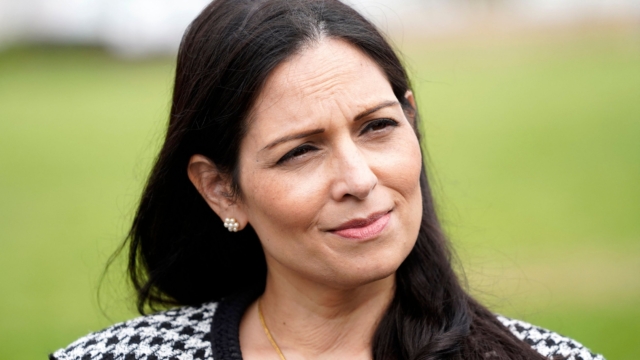LONDON: Policy proposals central to the UK government’s Nationality and Borders Bill have been voted against in the House of Lords, in what campaigners have described as a “victory for compassion.”
Peers rejected plans in the bill that would criminalize and penalize asylum seekers based on their method of arrival to the UK — a measure aimed at curbing small-boat arrivals via the English Channel.
They also voted against giving ministers the power to strip British citizenship from individuals without notice — a clause that some had warned risked leaving ethnic minorities in the UK as second-class citizens.
Both measures were highly controversial and had drawn condemnation from members of the governing Conservative Party, as well as rights groups and campaigners.
Enver Solomon, CEO of the Refugee Council, described the vote as “a victory for compassion, humanity and the rights of refugees.”
Discussing the government’s setback in criminalizing certain transit routes, he told The Independent: “Peers aren’t prepared to see this government undermine a key principle of refugee protection — that we should not discriminate against refugees based on how they travel. People desperately fleeing war and persecution should always have a fair hearing on British soil.”
He added: “We urge the government to take heed of what has happened in the Lords … and remove this harmful clause from the bill.”
Responding to the rejection of the Home Office’s attempt to allow ministers to revoke citizenship, Maya Foa, director of charity Reprieve, said: “Peers have heard the outcry against this attempted power grab by the home secretary. Now MPs must listen, and strike this discriminatory provision from the bill.”
If that clause was not removed, it would have allowed Home Secretary Priti Patel to remove a person’s British citizenship without having to notify them if she believed it was in the interests of national security, diplomacy or “otherwise in the public interest.”
The government is currently able to deprive people of their British citizenship under certain conditions, but not without informing them.
“The government’s powers to strip citizenship are already the broadest in the G20. They are used disproportionately against people from ethnic minority communities,” Foa said. “The House of Lords said: Enough.”
The bill will now return to the House of Commons, where it is expected to be voted on again within weeks.




